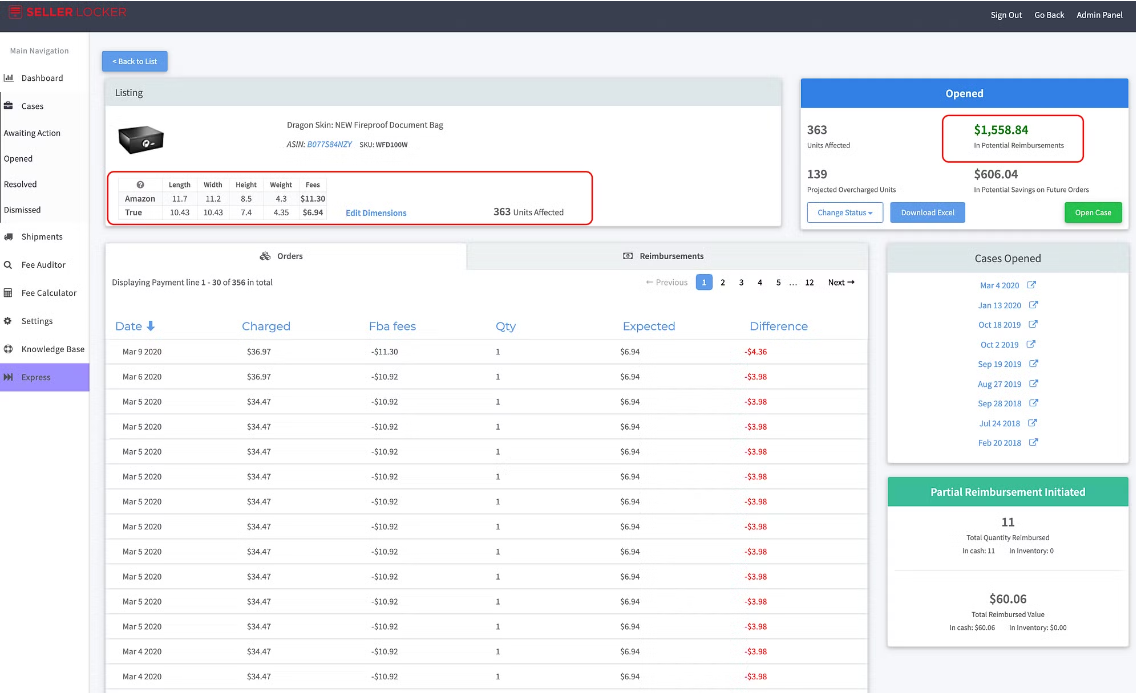Why Your Amazon Business Needs a Regular Reimbursement Audit: Maximizing Profits and Compliance

Selling on Amazon presents lucrative opportunities for businesses to reach a vast customer base and drive substantial revenue. However, navigating Amazon’s complex ecosystem of inventory management, order fulfillment, and financial transactions can be fraught with challenges and potential errors. These errors, if left unchecked, can lead to financial losses for sellers. Conducting regular amazon reimbursement audit is essential for Amazon businesses to identify and recover funds owed due to discrepancies or errors in Amazon’s processes. In this comprehensive guide, we delve into the reasons why your Amazon business needs a regular reimbursement audit, the benefits of conducting such audits, and how they contribute to maximizing profits and ensuring compliance with Amazon’s policies.
Understanding Amazon Reimbursement Audits
What is a Reimbursement Audit on Amazon?
An Amazon reimbursement audit is a systematic review and analysis of seller accounts to identify instances where Amazon may owe funds to the seller. These funds typically arise from errors or discrepancies such as lost or damaged inventory, overcharged fees, or incorrect customer returns. By conducting audits regularly, sellers aim to recover funds rightfully owed to them, thereby optimizing profitability and financial stability on Amazon’s platform.
The Importance of Regular Reimbursement Audits
Maximizing Financial Recovery
The primary objective of regular reimbursement audits is to maximize financial recovery for Amazon sellers. By identifying and rectifying errors in Amazon’s fulfillment processes, such as discrepancies in inventory management or fee calculations, sellers can recover funds owed to them. This ensures accurate financial transactions and enhances profitability by reclaiming lost revenue.
Ensuring Compliance with Amazon’s Policies
Regular audits help ensure compliance with Amazon’s policies and guidelines regarding reimbursement claims. By accurately documenting errors and discrepancies, sellers can submit valid claims to Amazon, reducing the risk of financial inaccuracies and maintaining transparency in financial transactions. This adherence to Amazon’s policies enhances trust and credibility with Amazon and its customers.
Identifying Operational Inefficiencies
Audits also serve to identify operational inefficiencies within Amazon’s fulfillment processes. By pinpointing recurring errors or patterns, sellers can implement corrective measures to streamline operations, improve inventory management, and enhance overall efficiency in fulfillment and customer service. This optimization leads to cost savings and improved customer satisfaction.
Mitigating Financial Risks
Proactively identifying and addressing potential financial discrepancies through audits helps sellers mitigate financial risks associated with errors in Amazon’s fulfillment processes. This proactive approach safeguards sellers’ financial interests, enhances risk management strategies, and promotes financial stability in e-commerce operations.
Benefits of Regular Reimbursement Audits
Optimized Financial Performance
Regular reimbursement audits contribute to optimized financial performance by recovering funds owed to the seller. This includes reimbursement for lost or damaged inventory, overcharged fees, or unprocessed returns. By reclaiming these funds, sellers improve cash flow management and maximize profitability on Amazon’s platform.
Enhanced Operational Efficiency
Audits highlight areas for operational improvement within Amazon’s fulfillment processes. By addressing inefficiencies and implementing corrective measures, sellers can streamline operations, reduce costs, and improve overall efficiency in inventory management, order processing, and customer service.
Compliance with Amazon’s Policies
Regular audits ensure compliance with Amazon’s reimbursement policies and guidelines. By accurately documenting and submitting reimbursement claims, sellers uphold transparency in financial transactions and maintain trust with Amazon and its customers. This compliance enhances seller credibility and minimizes the risk of financial penalties or account suspensions.
Strategic Decision-Making
Audits provide valuable insights and data-driven analytics that inform strategic decision-making. By identifying trends, patterns, and areas for improvement, sellers can make informed decisions to optimize operations, allocate resources effectively, and capitalize on growth opportunities on Amazon’s platform.
Implementing a Regular Reimbursement Audit Strategy
Establish a Audit Schedule
Develop a regular schedule for conducting reimbursement audits, such as quarterly or bi-annually, to ensure timely identification of errors and discrepancies. Implementing a consistent audit strategy helps maintain financial accuracy, optimize reimbursement opportunities, and mitigate risks associated with Amazon’s fulfillment processes.
Utilize Advanced Tools and Technology
Leverage advanced amazon reimbursement audit tools or software designed specifically for Amazon sellers to streamline the audit process. These tools automate data analysis, detect discrepancies, and generate detailed reports to facilitate efficient identification of reimbursement opportunities.
Collaborate with Audit Experts
Consider collaborating with audit experts or consultants specializing in Amazon reimbursement audits. These professionals offer expertise, industry knowledge, and strategic guidance to maximize financial recovery, ensure compliance with Amazon’s policies, and optimize operational efficiency for sellers on Amazon’s platform.
Conclusion
Conducting regular reimbursement audits is essential for Amazon businesses to maximize profits, ensure compliance with Amazon’s policies, and enhance operational efficiency. By proactively identifying and rectifying errors or discrepancies in Amazon’s fulfillment processes, sellers can reclaim funds owed, optimize financial performance, and mitigate financial risks. Implement a strategic audit strategy, leverage advanced tools, and collaborate with audit experts to establish a successful reimbursement audit process that supports long-term growth and success in e-commerce operations on Amazon. By prioritizing regular reimbursement audits, Amazon sellers can maintain financial health, improve customer satisfaction, and achieve sustainable business growth in the competitive e-commerce landscape.








